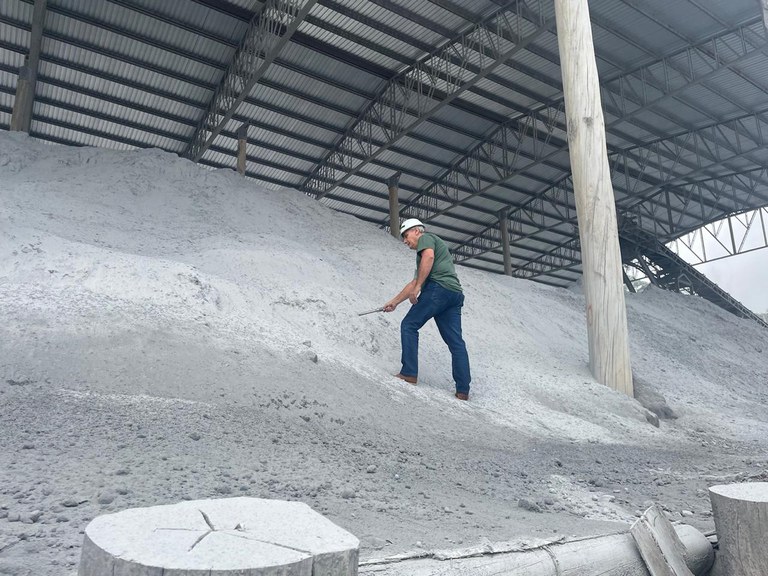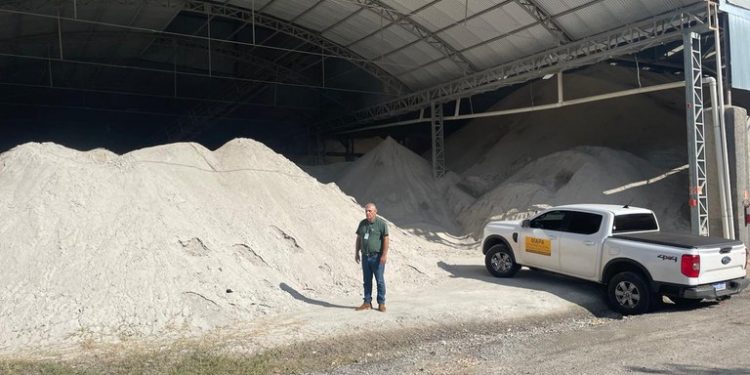Annual Inspections Ensure Soil Corrective Products Meet Standards and Requirements
The Ministry of Agriculture and Livestock (Mapa) of Brazil recently conducted thorough inspections of 11 agricultural lime (calcário agrícola) companies across several municipalities in São Paulo. This targeted initiative, scheduled during the peak production period of soil corrective products, underscores the ministry’s commitment to agricultural productivity and soil health management.
Agricultural lime, derived from ground limestone rich in calcium and magnesium, plays a crucial role in soil pH adjustment, a process known as liming. This correction is vital for fostering optimal conditions for plant growth by balancing soil components and enhancing nutrient availability.
According to ministry officials in São Paulo, the annual inspections conducted by the Inspection Service for Inputs and Plant Health (Sisv) of Mapa aim to verify the quality control measures implemented by these companies. These measures ensure that the products adhere to the declared specifications registered with Mapa, validating their integrity and effectiveness. Inspections focus on equipment inspections, including mills, screens, and hammers, to verify the consistency and particle size distribution of the lime.
During the recent inspections, a total of 16 samples were collected from the 11 companies, representing approximately 168,771 tons of agricultural lime. These samples have been sent to the Federal Laboratory of Agricultural Defense in São Paulo (LFDA-SP) for comprehensive analysis, including assessment of guaranteed components, heavy metals content, particle size distribution, and moisture content. These tests are essential in determining the quality and safety of the products available to farmers.
Officials involved in the inspection process anticipate receiving results from the laboratory within approximately 20 days. In cases where discrepancies are identified, companies have the right to request further expert analysis. If non-compliance is confirmed, penalties are imposed on the offending companies. Previous inspections have indicated an estimated non-compliance rate of around 20% of the total samples inspected.
The regulatory framework governing these inspections is based on various federal decrees and regulations, including Law 14,515/22, Federal Decree 4,954/2004 as amended by Federal Decree 8,384/2014, and Normative Instruction SDA/n°35 of July 4, 2006.






